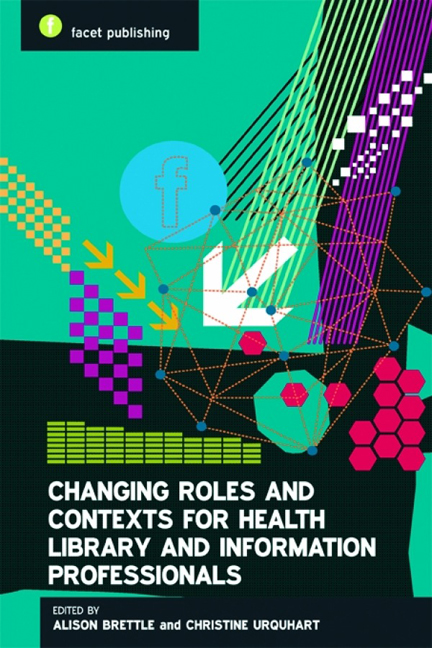Conclusion
Published online by Cambridge University Press: 08 June 2018
Summary
In the first part of the book we attempted to describe some of the changes that are taking place in education and in the health service. The emphasis was on events within the UK, but it is also important to remember that the UK is influenced by political initiatives from Europe and elsewhere. Globalization affects the organization and funding of health and education everywhere. We hope, therefore, that the case studies presented in the second part of the book provide some transferable lessons for library and information professionals working in different settings. One of the themes of knowledge management is the power of the story, to explain, through the story of an event, how problems were viewed, structured and solutions found. The stories are memorable, and provide a good memory aid for those seeking solutions to new problems that arise. Some of the case studies may not be immediately useful to you but, nevertheless, we hope that they will spark interest in finding creative solutions to current problems, or perhaps guide you in the design of a new service in the future.
The case studies, inevitably, represent (mostly) the success stories. We do not deny the value of learning from failure, and some of the most interesting and useful lessons for practice can come from reflections on what did not work. Research projects often provide a fund of useful experience on personal learning from failure, but we all know that it is very difficult to find a publication outlet for failed research projects or projects with negative findings. Similarly, it is much easier to find examples of success stories and good practice examples than to find contributors prepared to confess to the reasons why projects or ideas did not work out in practice. That is a drawback for further development of the profession and perhaps we need to be prepared to analyse failures in more detail, and do more careful ‘accident investigation’ in the future. Such accidents often provide the best learning experiences, after all. In the meantime, we can only urge you to read the case studies with some critical reflection on what might have been left out.
- Type
- Chapter
- Information
- Publisher: FacetPrint publication year: 2011

